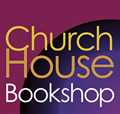Freedom in Resistance and Creative Transformation
This item is a print on demand title and will be dispatched in 1-3 weeks.
Hardback
£65.00
QTY
Publisher: Lexington Books
ISBN: 9780739173527
Published: 11/04/2013
The practice of freedom that is finite, realistically libertarian, and relational is vital for the wholesome development of human beings. In promoting this idea, Michael Miller challenges traditional Christian teachings that have hindered the pursuit of freedom by human beings on the basis of their humanity per se. It also provides theological, ethical, and ecclesiological insights to inspire ventures in freedom and guidance to those who are on the path of freedom.
The promise of Christian faith is that "for freedom Christ has set us free." Yet in the witness and theology of the church this promise is frequently hampered and often undermined by claims about God and humanity that serve instead to reflect and reinforce hierarchies of oppression. Michael Miller argues instead for views of God's creativity and humanity's limited self-creativity that make good on the promise of genuine freedom. -- Clark Williamson, Indiana Professor of Christian Thought, Emeritus, Christian Theological Seminary Michael Miller's attempt to provide an understanding of freedom in what he calls a "realistic" libertarian manner is a refreshingly honest series of studied reflections on how we can begin to re-appropriate our Christian traditions in ways that promote authentic freedom. His abiding concern throughout the text is that "the denial of freedom, which has characterized life in many parts of the world, has been perpetrated not simply because the oppressors misused theological concepts, especially the grounding concept of God, but because many traditional theological concepts, including that of 'God', lend themselves to oppressive use." This is a bold statement and his text is a successful attempt to support this claim. Professor Miller's dialogues with a range of interlocutors in philosophy, sociology, cultural theory and theology give the reader wonderful critical insights into historical and contemporary perspectives on this issue. If you carefully follow his argument you are compelled to engage his search for a realistic realignment of our theological endeavor in support of authentic freedom. This is done not only through a revision of the theological concepts used to understand God, but also through practical suggestions for Christian living, given towards the end of the book. Of special significance in this text, to my mind, is Professor Miller's privileging of thinkers and theologians from his native context, the Caribbean. All who engage the task of re-envisioning theological concepts especially as they inform Christian practice in the service of the marginalized should read this book. -- Gerald Boodoo, Duquesne University






